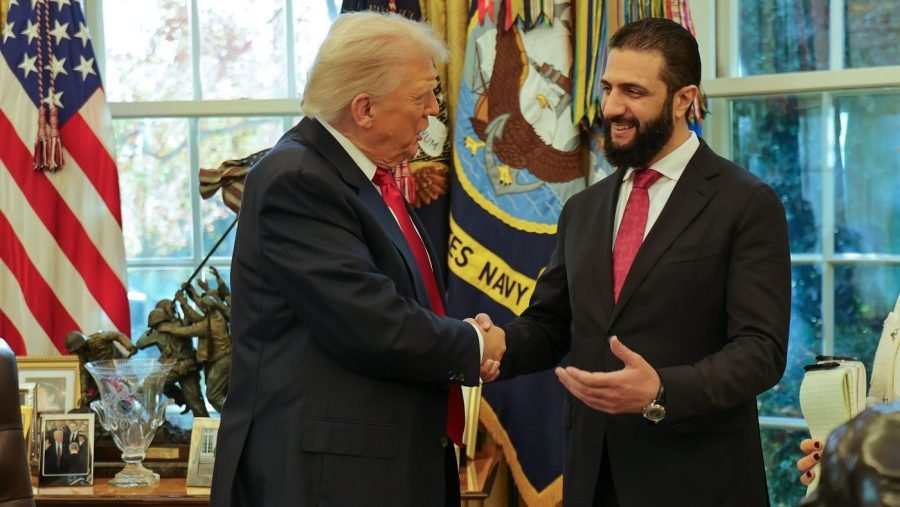The visit, a powerful symbol of the country’s return to the international community from its pariah status under the Assad regime, make Al-Sharaa the first Syrian leader to ever meet with the president at the White House. The trip is meant to further demonstrate al-Sharaa’s transformation from a jihadist fighting Americans in Iraq to a global statesman.
The visit comes nearly one year since al-Sharaa led a lightning offensive at the head of the formerly designated terrorist group Hay’at Tahrir al-Sham into Damascus, sending the country’s dictator for more than two decades, Bashar Assad, fleeing to Russia.
Since that time, the U.S. — under the Biden and Trump administrations — has taken steps to embrace al-Sharaa, viewing him as the best chance to rehabilitate Syria after more than 11 years of civil war, more than half a century of violent oppression, and ongoing challenges with sectarian violence.
Syria’s more-than-four-decade inclusion on the list of State Sponsors of Terrorism is likely to end in December, as the Trump administration works to lift all sanctions on the country.
“This regime has done a very good job, in spite of the speed bumps,” said Trump’s special envoy for Syria, Tom Barrack, speaking during the International Institute for Strategic Studies Manama Dialogue last week.
Not everyone in Washington is sold on al-Sharaa’s transformation. House Foreign Affairs Committee Chair Brian Mast (R-Fla.) is expressing concerns about Trump’s desire, and congressional efforts, to fully repeal the Caesar Syria Civilian Protection Act — sweeping sanctions imposed over human rights abuses under Assad.
“Discussions on Caesar Repeal are ongoing but my concerns should be obvious to anyone following the situation in Syria,” Mast said in a statement to The Hill on Thursday, without elaborating.
After talks with al-Sharaa behind closed doors, Trump praised him as a “strong leader” said the U.S. will “do everything we can to make Syria successful.”
The Treasury Department also on Monday promised “continued sanctions relief,” and announced a new order to replace its May 23 waiver on enforcement of the Caesar Act, extending the waiver by another 180 days.
Read the full report at thehill.com.

